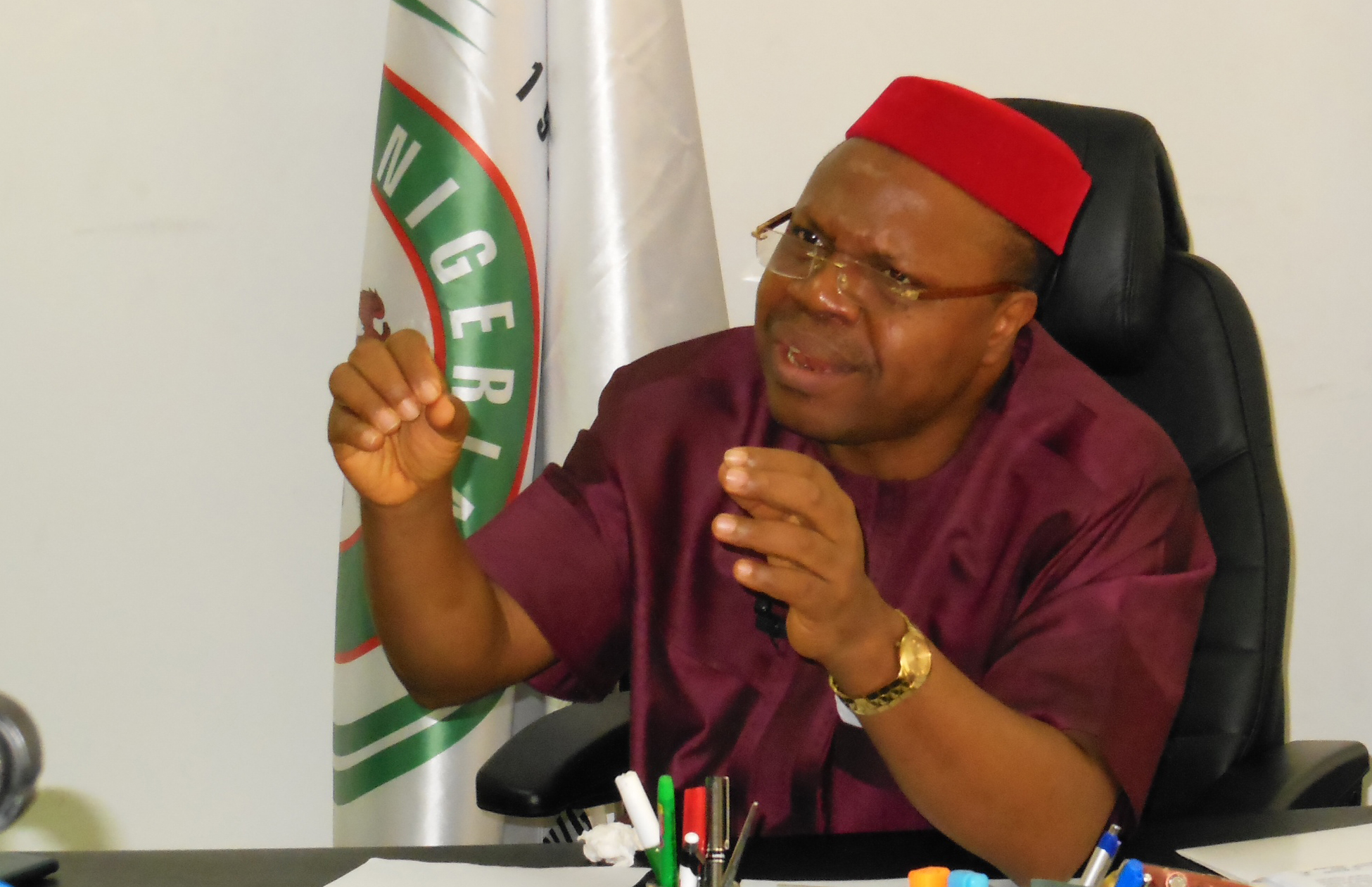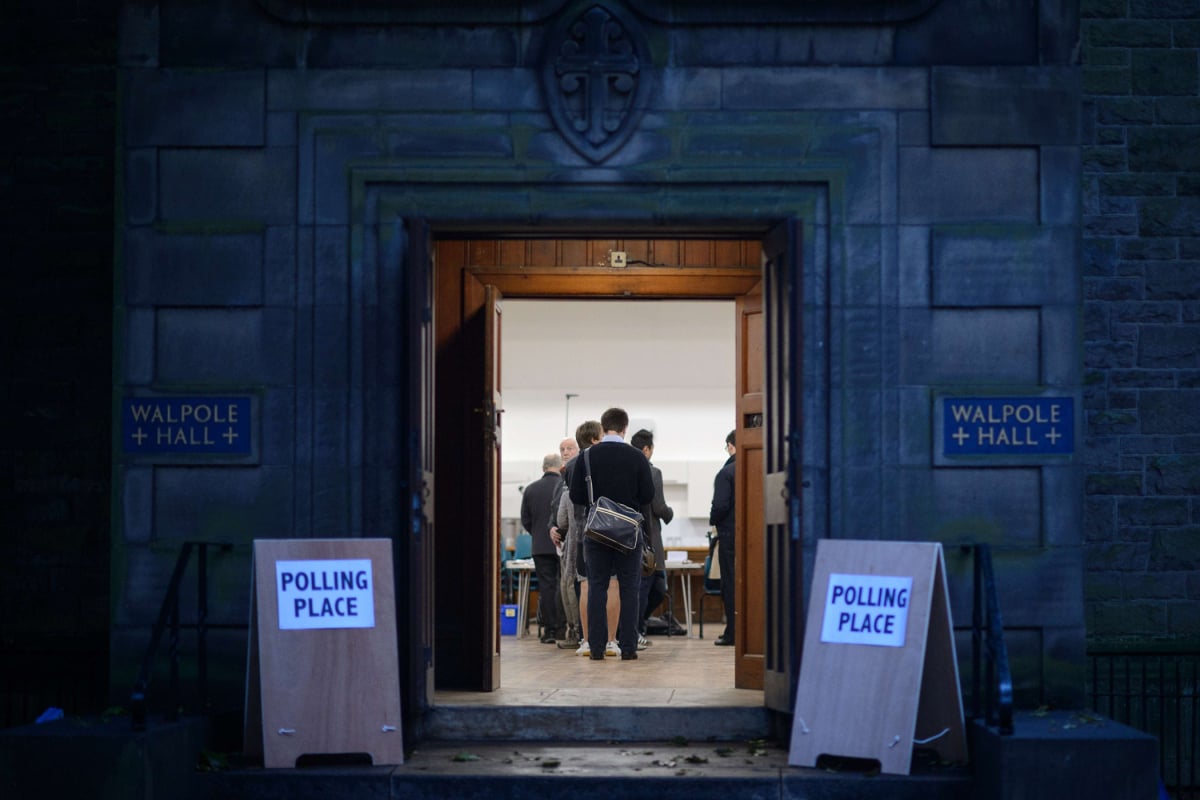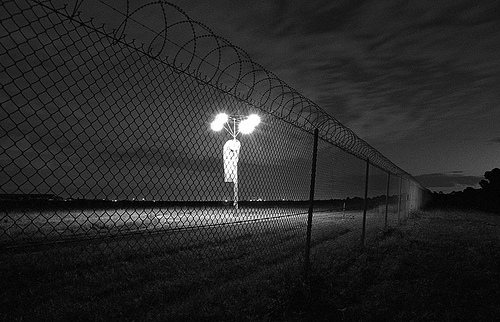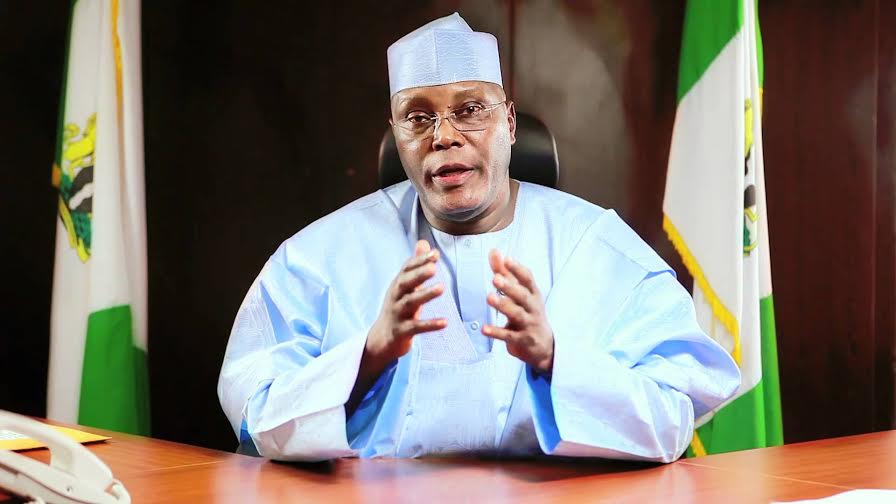Mr. Femi Ajayi, the executive secretary of the Petroleum Technology Development Fund (PTDF), is a biochemist, journalist and international law expert. He was science writer, editor, and member of the editorial board of Daily Times between 1983 and 1992, and served as communications specialist in the United Nations system for about 15 years. In this interview, Ajayi unfolds his vision and direction of his leadership of the Fund.
How did you receive the news of your appointment?
Because I had another assignment I was doing and also because there was somebody here, naturally I received it with mixed feelings because there was unfinished business at the other end and this is a new one. Of course, I saw this one as a new challenge so naturally there is always what you call the “fear of the unknown”. I had not been to PTDF before, I didn’t know what the challenges were, so just like any other human being NDLEA had become something like a comfort zone for me, so naturally there was that “fear of the unknown”.
You have been here for three months. How would you look at what you have met on ground, relative to your expectations?
Advertisement
PTDF happens to be one of those organisations that have a ‘larger than life’ kind of image out there, incidentally I had some little bit of knowledge regarding particularly the staff strength of this place. I knew that the staff strength of this place was under 200 as against NDLEA with staff strength of 5300. I did not know that this agency was this small. For instance, did not know that PTDF has only one office because you know NDLEA has 47 major offices apart from the local area offices. Having said that, I also was not aware of the amount of challenges that we have here with regards to maybe uncompleted projects, so many ongoing projects, I didn’t know that given the smallness of the office that they could be involved in so many things out there.
You mentioned many challenges. Which one would you consider most formidable?
I would say the funding element, because this is a funding agency, so naturally you will expect that if we are to be able to deliver on the mandate, then the funds should be readily available at least for the basic Programs and Projects that we are supposed to carry out.
Advertisement
One of the areas of PTDF intervention is sponsorship of Research Programmes in the universities. Indeed a group in Ahmadu Bello University made a break through recently. How does PTDF convert research result into something that is tangible which the country can draw benefit from?
First of all, the researches that we support in PTDF are need-based. They are researches that are sort of compelled by the challenges in the industry. So from the outset we will not support research that is unduly esoteric. So it is the challenges in the industry that sort of drive the kind of researches that we support, it is therefore most likely that research findings will be useful to the industry if it was supported by PTDF. In a way, PTDF research grants are meant to bridge the gap between the laboratory and the market, so it is not likely we will support a research process and the result will not be useful to the industry, because essentially the goal of our own research is to build a bridge between the laboratory and market. Having said that, it is not the duty of PTDF to go to the universities and make their research findings marketable, but any one that we put our money in will be such that it will enhance marketability of the research findings.
Another area of intervention is the overseas scholarship scheme where you send scholars abroad for PhD and MSc. Is PTDF looking at reviewing the programme?
PTDF is an evolving funding agency. We continue to review our processes, to modernise them and make them more result oriented. For instance, you are talking about curriculum content and things like that. Before now, the Fund has always been involved in knowing what the curriculum content of these universities are, in fact that is what determines which schools our scholars are sent to. Having said that, going forward, one of the things the Fund actually intends to do is to see how we can partner with some of those institutions who train our scholars to come to Nigeria and set up shop here, so that we can domesticate some of the training programs here in Nigeria.
Advertisement
What I am saying is, as part of our local content initiative, we intend to convince our training partners to come and set up local branches, Nigerian branches of their schools, such that in a way we will have more control as far as the content is concerned and able to train many more people. That is the goal going forward. Even now our choice of universities are based on which ones are carrying out the kind of programs and curricular that we want, so we are quite discriminatory with regards to where we send our scholars to.
What is the situation with the payment of scholars’ allowances and tuition? There had been delays and protests.
When you talk about delay of allowances… we know the ways of scholars, because as a scholar you are focused on your academics, sometimes some scholars may forget when their accommodation is due, when some allowances are due, so if you don’t inform us in time sometimes because we don’t have a software for knowing because there are so many scholars involved, sometimes to trigger the preparation for a particular allowance the scholar may need to inform us but sometimes some scholars may forget based on some other concerns like academic concerns and others. So if you inform us too late because there are so many things that we are responsible to our scholars for that is probably why even to deliver on our own mandate can be a bit difficult. For your information, PTDF has the most generous scholarship package. There are so many allowances that are involved so sometimes if a scholar wants to attend one technology fair in the USA and he is telling us about it one week to the programme, it may be because he did not get to know about it in good time or rather because his attention might have been taken by some other things and we need time. Don’t forget that this is a Fund. Look at our staff strength for instance vis-a–vis the number of people we are taking care of you will see that the level of efficiency is very high.
Then again considering the kind of age group we take care of, some of those things you are talking about like the protest, one can’t really run away from them. We are dealing with people who are restless and who are not patient enough and who want things to happen like yesterday. You know this generation is the ‘dot com’ generation; they think development is a push button affair. It is not everything you get at the touch of a button. That is the challenge. The generations we are taking care of are very impatient, they want things to happen at the touch of a button but things don’t happen that way, there are some things that need a gestation period to happen.
Advertisement
One of the steps the Fund has taken just some few weeks before you came was the domestication of the allowances, where allowances will be paid in naira. Will this not pose a problem?
No, it will not shortchange the scholars; in fact I am one person who believes we should have more pride and confidence in our own currency. In fact, we are going to denominate our scholarships in naira, such that those people we have given awards letters in maybe pound sterling or dollars going forward we will be paying part of their money in naira and pound sterling, whichever one is more convenient and mutually agreeable to the parties. But from now we are going to domesticate every scholarship or loan in naira but we will make sure that we don’t shortchange our scholars in the process.
Advertisement
Now let’s come to the selection process of the scholarship scheme itself. Over the years PTDF has really been one of the top agencies that have been able to insulate the process from political interference. What are the steps you are bringing on board to ensure the integrity of the process remains intact?
It will be because some of these things have already been institutionalised. For instance, we are talking about the MSc programme that was just released recently. You find out first there are some things we do on the basis of equality of states, if we are going to get one from each state, what we do is based on merit if we take one from each state, it means the person with the highest score in his state will first qualify, one each from the 36 states and one for Abuja and that makes 37. After that we use other criteria, since this is PTDF and its an oil and gas thing, we might say having given one to each state are we going to give something to the oil producing states. So one each will be given to them, after that you look and realize you don’t have enough women in it because we also want to promote more scientist and engineers who are women. We then say based on gender we look at the 6 geo-political zones and say maybe one or two from each geo-political for the women. There are always set criteria that you can easily justify and our process is very transparent.
Advertisement
One of the issues that the industry operators have complained about is the need to entirely domesticate the training programme. Do you support this?
Actually, that is a number one priority for us for several reasons, reasons of waiting to have more control as far as the quality is concerned and to also make sure that there is contemporary relevance because he who feels it knows it. We know what we need. It is not likely that someone who is in another political clan or economic clan will know what is needed in our industry more than we do, so if for instance we have these training institutions here, some of the people from our industries can come over there from time to time to give lectures, the same thing in our universities. That is why we are going to be very persuasive as far as this is concerned. In fact, going forward it may be one of the conditions for partnership with some training institutions, their readiness to come and domesticate their operations.
Advertisement
Concerning institutions that PTDF is developing, when are they likely to be completed and commissioned?
We do have a target date, you are probably aware that Mr. President wanted to commission the Federal Polytechnic in Ekowe in Bayelsa last February, but he did not commission it, rightly so I believe because the laboratory equipment and other equipment needed to make the polytechnic functional were not yet there. So he decided to wait until those things are in place which makes sense, so the challenge that we are having at the moment is that of funding. Apart from the Ekowe project, there are others like Petroleum Training Institute Warri (PTI), the Nigerian Institute of Petroleum Policy and Strategy (NIPPS) in Kaduna. For the ongoing projects we need a total of about N35billion to take care of ongoing projects. That is the challenge we have now.
As an organisation in this industry, everybody seems to be upbeat about the passage of the Petroleum Industry Bill that is still pending before the national assembly. Now what is the level of readiness of PTDF? Will its operations be altered radically?
We are ready. In fact, PTDF is one of the agencies of government that has started implementing the Petroleum Industry Bill even before the passing. For instance, this local content initiative, which is an integral part of the Petroleum Industry Bill, we have a whole department out of the seven departments we have here which is the Nigerian content department and am sure if you are familiar with our programme you know about the Welders Scheme that we do with the Nigerian Institute of Welders and even the International Institute of Welders, so that is an attempt to ensure that even before the passage of Petroleum Industry Bill, we are already implementing some aspects of the bill. So we are ready, very ready, but we must also say that we have our dreams regarding the Petroleum Industry Bill because the current act of the PTDF only provides for the funding of the agency mainly through signature bonuses, we are hoping that the passage of the Petroleum Industry Bill which contains other sources of revenue for the PTDF would make life easier for us. If the Petroleum Industry Bill is passed and you now have diversification of the sources of revenue to the agency/the Fund, then some of the challenges we are having with funding our critical projects like PTI, Federal polytechnic Bonny, Federal Polytechnic Ekowe (Bayelsa) Nigerian Institute of Petroleum Policy and Strategy will be addressed.
With the autonomy that is going to be granted largely by the passage of the PIB, will it be of help and if rightly so, how and what will be the outlook of PTDF?
You are very much familiar with this agency, you know that with the PIB, we’ll have a board and I believe that the autonomy of the Fund will make it more responsive in the sense that it will be able to act faster on some things and basically it should make it more effective because at this point in time there are still some things that have to wait. You are also aware that there are always pros and cons to things. At this point in time without a board maybe there are some things that we can do with more dispatch that we may not be able to when there is a board. There are always two sides to every coin. Definitely there are more advantages that will accrue to our Fund from the passage of the Petroleum Industry Bill.
What kind of PTDF should Nigeria expect under your leadership?
A PTDF that is more result-oriented, that gives more value for the money that is invested in the organisation and a PTDF that is closer to the people because at the moment we have PTDF only in Abuja. For a big country like Nigeria I think we need zonal offices. If we cannot do the six geo-political zones due to the financial implications, we should be able to have it even if it is two zonal offices one in the northern part and another in the southern part of Nigeria, especially in the oil-producing areas because for an agency that caters to all Nigerians it needs to be closer to the people.
In what state was the Fund when you came in?
I must say that the Fund was in good hands, because there were reform measures going on and some of the challenges that my predecessor met were being addressed gradually like for instance, the issues of payment of debts, they were being streamlined and things were going in the right direction maybe what we are going to be doing now is more of the same thing and also of course introducing some new measures to ensure that we get more value for money and of course the issue of the funding of the agency. We are going to take it more seriously because we should not have a Fund without funds and all those avenues and opportunities that are open to the fund will be rigorously pursued because I found out that the year before the last and this year, there were some appropriations made to the agency. Meanwhile last year not one kobo of the money appropriated to the agency was released. I will not blame it on the system. it is probably because of these signature bonuses. But now that we have all these outstanding projects and because apart from the outstanding projects and the on-going projects, there are some outstanding projects which have passed through the due process office, we intend to engage with the relevant government organs and agencies to ensure that these funds are released to enable us execute the outstanding programs and projects.
You’re so passionate about decentralising, having branches of the Fund. Do you have projections on when this process will begin to happen?
I am hoping that if it doesn’t happen before the end of the year, it will happen next year at least two zones, because it’s not just the sentimental issue of being very close to the people, it will make the fund more efficient, Because if you want to do something in Bayelsa or Port Harcourt you will have to take off from here to go and do it, but if you have a zonal office either in Yenegoa or Port Harcourt, someone can take off from either of the two places, reach any of the projects, do the job and get back. It will make us more efficient and it will also make us more cost effective, Add to idea of this agency being a national agency. That is why I am so passionate about it. I believe it will serve the greatest good of the greatest number of people if we decentralise a bit.
Add a comment






